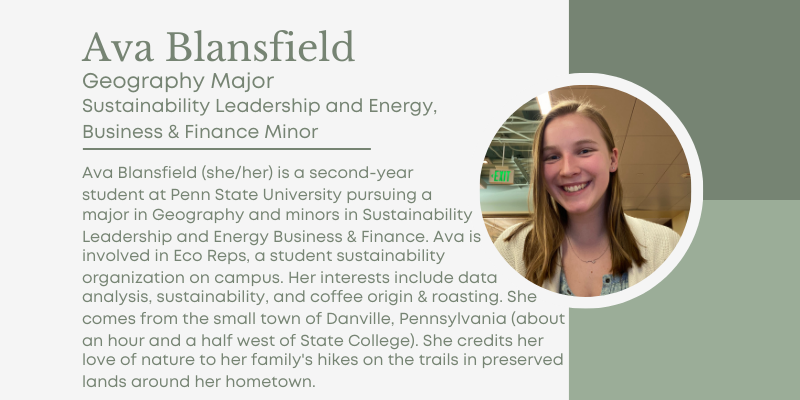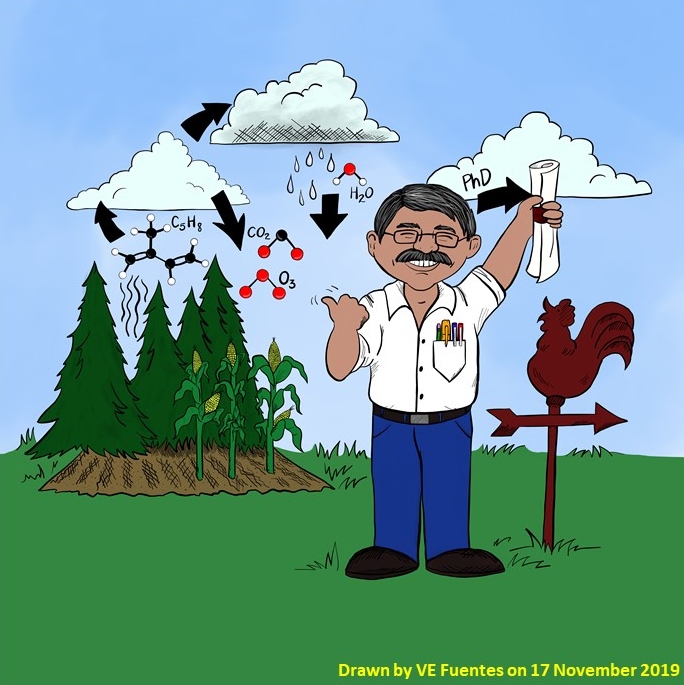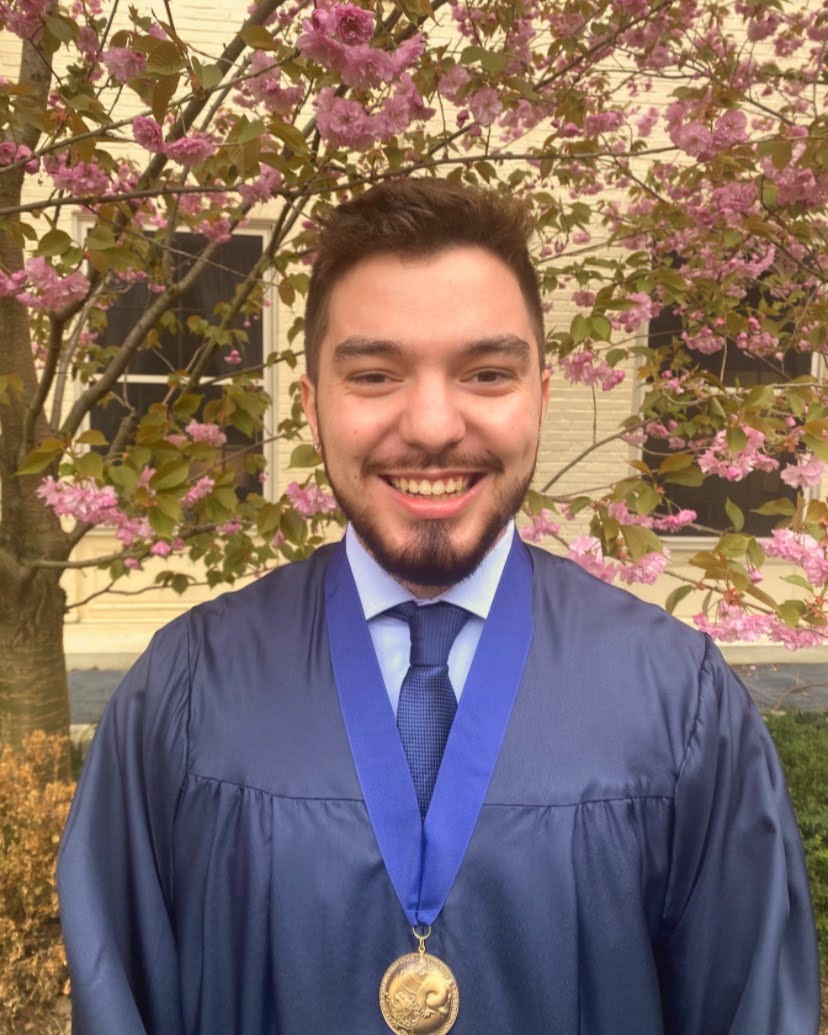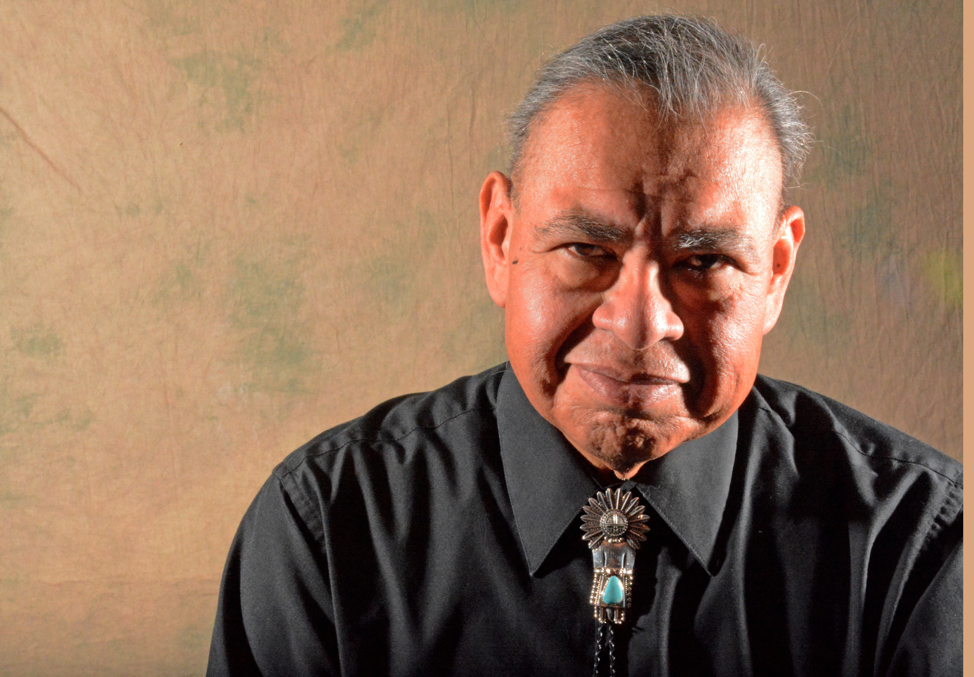Becoming an Educated Climate Warrior
By Ava Blansfield
A Note from Dr. Lucy R. McClain, Associate Teaching Professor of Sust 200: Foundations of Leadership in Sustainability:
When I first began teaching SUST 200 at Penn State in the fall of 2018, the weight of the climate crisis was something I truthfully hadn’t acknowledged or felt on a personal level–or maybe I did. Still, because it feels so amplified in my current state, I could be minimizing how I felt six years ago. Regardless, as I went through the course topics each week of that first semester, muddling my way through teaching about issues outside of my comfort zone, like mass transportation, food waste, and soil degradation, the heaviness of the climate crisis began to seep inward and root itself in the core of my being. Over the next few years, I did my best to tamp down these feelings of dread, helplessness, and anxiety so that I could teach the course with an air of confidence and control. The evolution of the course and a growing awareness of the students’ own feelings of anxiety led me to make an important addition to the class content.
Spring 2022 was the first semester that I, with significant support and guidance from my TA for the course and PhD Candidate in Science Education, Emily Olsen, created space to openly acknowledge and discuss eco-anxiety alongside tips for managing this anxiety. I was validated in this decision when I attended a webinar in late April 2022 that emphasized the importance of validating climate emotions in education. Being vulnerable and sharing my personal feelings, fears, and concerns for the future while also cultivating a safe space for students to either listen or share their own emotions related to the changing climate is now a core feature of SUST 200. I am hopeful that this class and its approach not only motivate students to take action in their future careers and livelihoods but also contribute to their emotional resiliency through healthy conversation, self-care, and empathy for others.
The joy of getting to teach and work with students like Ava–the author of the below blog post – is the remedy for my eco-anxiety. I am inspired by her motivation and energy to not only explore her creative side but also to share her emotional processing with others in a very vulnerable and public space so that readers may benefit from it. She, alongside all of the other students I have been fortunate to meet over the years, reminds me that this generation is full of creative, motivated, and educated climate warriors who can and WILL make a difference. Without further ado, I hope you will enjoy Ava’s blog titled “Becoming an Creative Climate Warrior.”
Becoming an Educated Climate Warrior
As more carbon goes into the atmosphere, more warming occurs, which releases more carbon dioxide into the atmosphere… creating a vicious loop. Education about climate change can feel like a similar feedback loop of carbon dioxide and global warming: the more you learn, the more menacing global warming may feel. And yet, the education side of the climate crisis is important because to make a change, we need to be knowledgeable and motivated, which may, at times, seem mutually exclusive. To circumvent this, education about climate change could be re-imagined so that it starts with cultivating motivation through connection before heavier topics are introduced. In this way, a new, productive feedback loop is created, whereby motivation further fuels knowledge which fuels more motivation!
We are worried about teaching the wrong thing. While learning about climate change and sustainable practices is very important for solving the climate crisis, it is often overwhelming. Why start with teaching the negatives of climate change and possibly alienating future warriors? Perhaps, we could start by focusing on the positives. We could move from debating the ethics of teaching about the realities of climate change and instead focus that effort on teaching love for nature, Earth, and other humans.
So when do we begin this process? There are many opinions about when and at what stage of life to teach others about climate change…
There’s always a reason not to
Baby – too dumb
Kids – too young
Teenagers – too stressed
College – too much on their plate
Adult – too set in their ways
Old – too late.
So if not now…
when?
The effects of climate change continue to worsen with each passing year, but we are also experiencing a rising number of people who care about it. I fear that climate change will affect me, the people I care about, and the spaces we love. Still, I am simultaneously inspired by my fellow classmates, who feel strongly about sustainability because of a personal experience or love for nature. In my blog post, “Motivated Climate Warriors,” I wrote about different motivations for becoming a climate warrior. My motivation came from the joy of running in the grass outside as a kid. My parents connected me to my front and side lawns by making me go outside (sometimes against my childish will). Other people who have shared with me their motivations to join the fight against global warming often inadvertently mention a place: the beach they went to on family vacations, the river they fished on, the trail they walked on, where they saw a cool animal they wanted to save or their backyard. This motivation pushes people to become climate warriors, take classes on sustainability, join clubs, be activists, or just recycle.
(Me as a child in my yard)
Once the love of natural spaces is taught, the hard facts of climate change can be taught. Where there is initial motivation, climate, and eco-anxiety can be managed more successfully. There is no best time to teach the sustainability blues, but they are easier to handle with a personal connection.
By leading with a relationship to the place, we will naturally create and welcome more climate warriors! We teach motivation first, which encourages the pursuit of education. The most powerful defense we have against climate anxiety, eco-anxiety, and all the bad things we feel is the Earth itself. So find your place, get connected, get passionate, get motivated, and use those feelings to fuel your education and the education of others.







